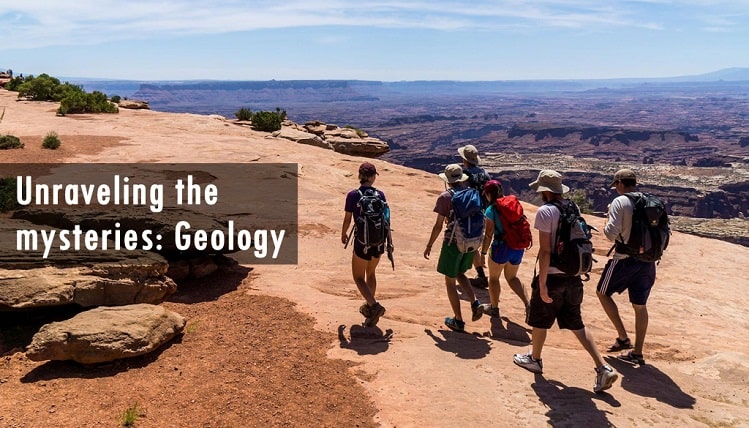
Unraveling the mysteries: Geology
Ever since humans found evidence of water on Mars, there has been an increased curiosity to study the Red Planet. As we are all well aware, that life cannot exist without water and Earth is the sole planet in the solar system where life as we know exists, have you ever wondered why this is so? Our Earth is the only one with the requisite atmosphere, water and soil to support the conception and evolution of life. Do the picturesque mountains and the bottomless oceans we all love to put in our Instagram feed ever make you curious as to will they stay forever? If you want to unravel all these secrets, then making a career in Geology is the right choice for you. The widened scope of geology and earth science has opened myriad of opportunities for the aspirants.
What is Geology?
Geology is such a subject which is introduced in the curriculum once students enter their science graduation as a new subject. Therefore, for many aspiring graduates it is an unknown branch of science. The subject geology is further divided to several branches to deal with specific areas mainly Physical Geology, Geomorphology, Crystallography, Mineralogy, Petrology, Stratigraphy, Structural Geology, Paleontology, Economic Geology, Hydrogeology and other applied branches.
Courses in Geology
- B.Sc. (Hons.) Geology
- B.Sc. in Geology
- M.Sc. Applied Geology
- M.Sc. in Applied Geology & Geoinformatics
- M.Sc. in Petroleum Geology
- Master of Geology in Earth Science and Resource Management
Many short-term courses and Diploma courses in Geology are also available that you can take up.
What do you learn in Geology?
This new array of science is behind the answers of many questions like-how and when the Earth was formed? What is its internal structure? Why does an earthquake come? All such interesting discussions are dealt under Physical Geology. Whereas when life begins, how it evolved through time was the subject area of Stratigraphy and Paleontology. An Engineering Geology student can tell you where to construct an effective dam or tunnel? How many ice ages were there or what was the paleoclimate of Earth, and so on. Geology was taught under Arts until the concept of plate tectonics was established in the 1950s through the 1970s. Geology is a field-oriented subject and it provides good opportunities to unravel the mystery.
The knowledge of geology is the main source behind the search of mineral deposits hidden within the Earth’s surface that gives the nation its economic and strategic strength. How to tackle floods, droughts & landslides; saving people from earthquakes and tsunamis, waterlogging like natural disasters and providing the habitants safe and sufficient water for drinking, irrigation and industry all comes under the study purview of Geology. Thus, Geology is a subject which gives you inner strength and adaptability to the nation. A qualified workforce of geology is essential for self-reliance of a nation like India, having a large geographical area with rich geological diversity.
Scope and Career Opportunities
Geology provides a challenging career to young and dynamic thinkers. Geology graduates are having opportunities to take up geology as one of the main subjects for writing exams for NET, GATE, UPSC, Forest Service etc. Post-graduation with geology further opens up ample opportunities of getting class-I jobs through UPSC- Geoscientist examination in GSI and CGWB and exams for ONGC, CIL, NMDC, AMD, MECL and many more in central and state organizations, in various mining sector, cement industries captive mines and moreover provide opportunities for self employability. Domain specialists and extra terrestrial research and research in academic and research organizations are lucrative options where geologists can show their talent.
Written By:- Dr. Arunangshu Mukherjee, Professor and Head, Department of Earth Sciences and Environment, FET, MRIIRS.



